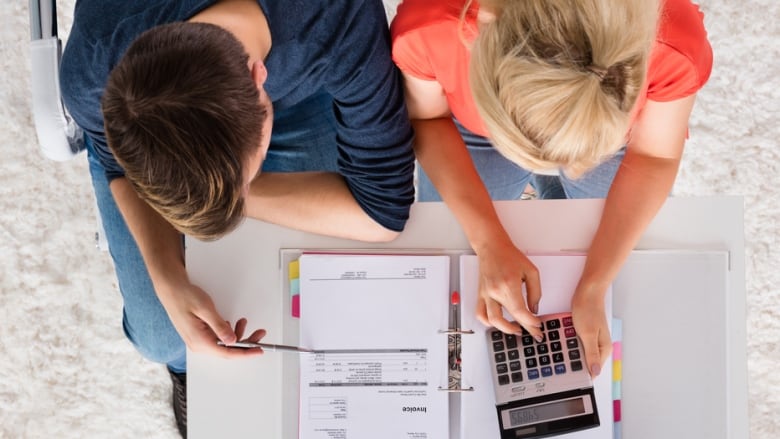Albertans more worried about debt than other Canadians, survey says
40% of Albertans have trouble paying down debts, compared with 31% nationwide

Results of a Canada-wide survey released Wednesday paint a picture of a nation that's feeling nervous about personal finances as the economic toll of the COVID-19 pandemic adds up and nowhere more so than in Alberta.
The Credit Counselling Society's national 2020 consumer debt report says 31 per cent of Canadians are having a hard time paying down their debts simply making minimum payments or falling behind.
But in Alberta, four in 10 of respondents said they are in that situation.
"With so many Canadians carrying non-mortgage debt and making only minimum payments, we can foresee negative repercussions that bleed into 2021," said Mark Kalinowski, a Calgary-based financial educator with the society.
"With government subsidies winding down alongside negative economic forecasts, we're concerned about how the impact of COVID-19 will have long-term debt effects far beyond 2020."
The report, which was conducted by the Angus Reid Forum, found that 27 per cent of Canadians say their personal finances make them feel anxious.
That figure jumps to 39 per cent for Alberta respondents.
"Albertans are very anxious right now in terms of their personal finances. Their incomes are down, their debts are up and there's no end in sight.COVID continues, low oil prices continue," Kalinowski said.
"They're really trying to find a plan so that they can address their personal finances in a positive way, but it's a moving target."
The report also says external factors such as cost of living increases and economic factors that are out of people's control are at the top of the list of concerns for about half of Canadians.
But in Alberta, that figure rose to 67 per cent, and for Canadians earning less than $100,000 per year, the figure was 55 per cent.
Nationally, the survey found that about half of Canadians feel optimistic about their finances as 2021 approaches, while 21 per cent are pessimistic. But in Alberta, 31 per cent say they're feeling pessimistic.
In terms of the impact of the COVID-19 pandemic on Canadians' personal finances, the report says it has been most pronounced in terms of forcing people to cut back on non-essential spending and to try to build up their emergency savings.
The survey found that 61 per cent of Alberta residents are more likely to say the pandemichas made cutting back on non-essential spending more important.
Kalinowski says they are seeing people from a wide array of age groups and economic backgrounds who are dealing with reduced incomes and worries about mortgage and debt payments.
"They're really uncertain about what steps to take moving forward to ensure that they can remain in their homes and keep their personal finances viable."
The societyurges anyone experiencing debt problems to reach out for help and advice from sources like their banks and credit counsellors.
"If you are constantly feeling anxious or pessimistic about your finances, the best thing you can do is ask for help. There is no income level where money problems disappear," saidStacy Yanchuk Oleksy, the society's director of education and community awareness.
With files from Dave Gilson.












_(720p).jpg)


 OFFICIAL HD MUSIC VIDEO.jpg)
.jpg)



























































































